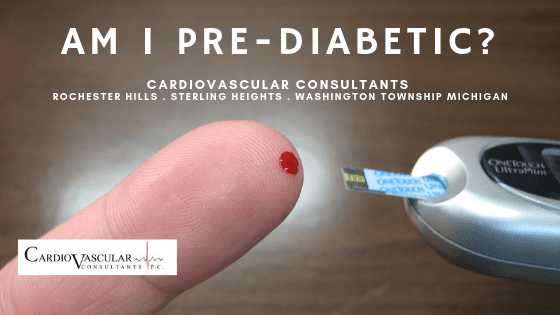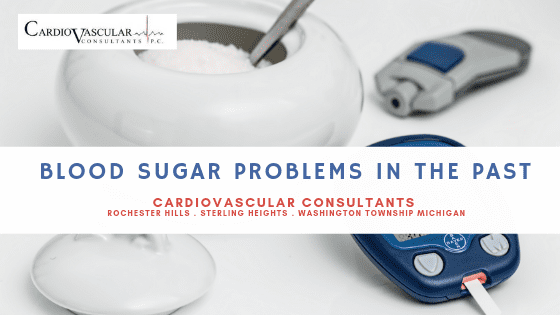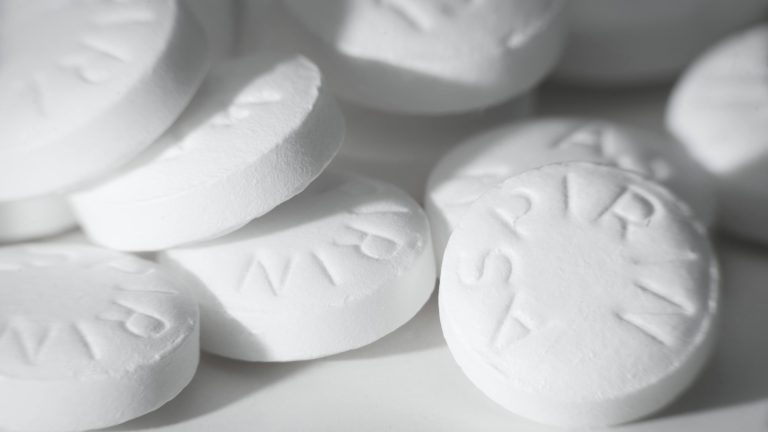HOW CAN I TELL IF I AM PRE-DIABETIC?
What is prediabetes?
Prediabetes is a condition that indicates the risk of getting type 2 diabetes. In prediabetes, the levels of blood sugar are higher than usual but cannot be considered as diabetes. Prediabetes is also called borderline diabetes, glucose intolerance, and impaired fasting glucose.
The pancreas produces insulin during the prediabetes, but this insulin is a week at clearing sugar from the bloodstream.
That’s not a rule that if you have prediabetes, then you will also develop diabetes. However, it is just a warning sign that your blood sugar lies on the upper side. People having prediabetes have 5 to 15 times more prone to develop type 2 diabetes.
Do I have prediabetes?

To confirm this confusion that whether you are suffering from prediabetes or not, the only possible way is to have a blood test. That will provide you the detailed information about your condition.
Risk factors of pre-diabetes
Following risks can increase the chances of prediabetes
Can it be reversed?
Practically, the answer to reversing prediabetes is possibly “yes”. If any of risk factors are there for prediabetes or having some definite signs of prediabetes, then still you can fight to turn things around. The problem happens when you ignore the possible warning signs and then ultimately develop type 2 diabetes. To reverse this condition, you have to change your lifestyle.
Early warning signs
According to various researches, prediabetes is not a problem. There are no specific symptoms of prediabetes. One thing to focus on is that people having insulin resistance in early stages can develop type 2 diabetes if insulin resistance continues for a longer period.
Signs of prediabetes
Prediabetes often does not show any signs and symptoms, and it can only be diagnosed by having a blood test.
But there are some change patterns in the health might be the indicator of prediabetes, so you must understand these signs to prevent further complications.
Gaining weight
Being overweight is the most serious risk of getting diabetes. If you are gaining weight, especially around your belly, then there are more chances of becoming resistant to insulin. Fat also deposits around your organs when you are gaining weight. This will put stress on your pancreas to secrete more insulin and makes it difficult for insulin to do its job.
To avoid getting overweight, you must add more vegetables and fruits in your diet to keep yourself fit and healthy.
Skin problems
Prediabetes shows some effects on the skin due to insulin resistance, which are major indicators of it. Darkening of skin in the armpit or on the back and sides of the neck. A number of skin growths also occur in these areas as well. Other affected areas include elbows, knees, and knuckles.
Consuming more sweets
If you love to eat sweets, then this can put you on the higher risks of getting diabetes. Desserts taste good but overdosing of these sweets, carbohydrates (bread, pasta, rice potatoes) can lead to weight gain and disturb your sugar levels. So, you must limit your carbs and sweets and try to consume more proteins, whole grain and vegetables.
Lack of exercise
No physical activity put you on the higher side of getting diabetes or prediabetes. When you regularly do physical activities, your body utilizes insulin more efficiently and assist you in marinating healthy weight. It is recommended to do at least 150 minutes of moderate exercise in a week or if you have a sedentary lifestyle, then you must start with 10 minutes of exercise or any physical activity per day.

Blood sugar problems in the past
There are more chances of occurrence of prediabetes and diabetes if you have a family history of diabetes. Your genetic makeup and ethnicity matter a lot in this case.
Sleeping problems
If you are not getting enough sleep, then it is problematic for your body. You may gain weight due to bad sleep and which increases your chances of prediabetes. Obstructive sleep apnea is a sleep disorder that interferes with the blood sugar levels too.
Increased thirst
Having excess glucose in your blood puts extra pressure on your kidneys to filter and absorb the excess glucose. Excess glucose excreted also dragged extra fluids from your tissues and pass into the urine and make you dehydrated and increases your thirst too.
Frequent urination
Taking more fluids in to manage your thirst caused by excretion of glucose and other fluids leads to frequent urination. More your drink the fluids frequent the urination.
Fatigue
Insulin resistance due to prediabetes can affect the ability of the body to get glucose from the blood into cells to meet energy needs. Due to which people feel tiredness and fatigue. It is also challenging to carry regular tasks due to low energy levels, and it can also cause depression.
Blurred vision
As your blood sugar levels are high in prediabetes, which affects your ability to see by swelling the lens of the eye. The swelling on lens leads to temporary blurred vision. After this condition retinopathy, can also develop which alter the structure of the eye and can result in vision loss.
Determining if you have borderline diabetes
One of the best ways to assess prediabetes is to check your sugar levels regularly. If you develop above-mentioned symptoms, then you must consult your doctor.
Necessary tests to check the presence of prediabetes are
- Hemoglobin A1c (hba1c) test
- Oral glucose tolerance test (OGTT)
HbA1c determines the blood sugar pattern of the last two to three months. If the HbA1c reading lies from 5.7 to 6.4, then it indicates prediabetes.
Complications of prediabetes
If you didn’t control your prediabetes, then it can affect other systems of your body as well. You may develop various chronic illness. Uncontrolled prediabetes can lead to
- Vision loss
- Nerve damage
- Kidney damage
- Cardiovascular disease
Experiencing different warning signs discussed above indicates the presence of prediabetes. You can control this condition by changing your habits, your lifestyle. This will not only cure prediabetes but also reduces the chances of occurrence of diabetes and other health complications.
Call now (586) 698-1200 to schedule an appointment with a Cardiologist in Sterling Heights, Washington Township or Rochester Hills, Michigan.




